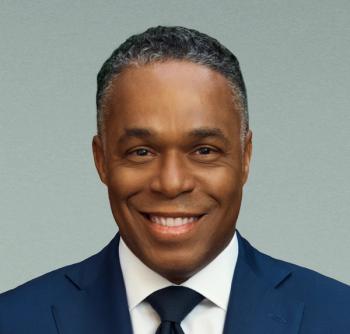
Legal battles continue over emergency care in state abortion laws
A federal judge in Idaho said federal law supersedes a part of that state’s law pertaining to healthcare providers. Conversely, a Texas judge ruled that federal guidance doesn’t override state law.
President Biden’s administration succeeded in blocking part of an abortion law related to emergency care in Idaho, but it’s just the latest, and hardly the last, in a series of battles around the country.
A federal judge in Idaho Wednesday approved a request from the Biden administration to temporarily block a portion of Idaho’s law a day before it was to take effect. The U.S. Justice Department argued that Idaho’s law improperly prevented physicians from following federal law, which requires doctors to offer stabilizing treatment in medical emergencies.
“Even when it comes to regulating abortion, state law must yield to conflicting federal law,” U.S. District Judge B. Lynn Winmill of Idaho, wrote in the
U.S. Attorney General Merrick Garland said in a
At the same time, a federal judge in Texas ruled this week that federal guidance doesn’t derail that state’s law regarding abortions and emergency care.
The Idaho case
Idaho’s law allows doctors to intervene and perform an abortion to save the life of the mother, but it doesn’t offer exceptions for providers to perform abortions in serious health risks. The Idaho law is considered among the most limited in the country,
In July, weeks after the U.S. Supreme Court upended abortion rights nationwide, HHS Secretary Xavier Becerra sent a
The American Hospital Association and the Association of American Medical Colleges filed
“Hospitals and emergency room physicians need clarity about the legal regimes that govern the provision of care. They need to know what treatments they may—and, in the context of EMTALA, must—provide,” the two groups stated in the brief.
“The conflicting federal and Idaho frameworks, however, generate exactly the kind of uncertainty that is antithetical to the practice of sound emergency medicine,” the AHA and AAMC said.
The Idaho judge noted both the federal guidance and the petitions of doctors in his ruling.
“The United States has submitted declarations from physicians explaining that there are any number of pregnancy-related complications that require emergency care mandated by EMTALA but that are forbidden by Idaho’s criminal abortion law,” Winmill wrote. “Idaho physicians have treated such complications in the past, and it is inevitable that they will be called upon to do so in the future.”
The district judge in Idaho noted the danger to patients in an environment when doctors don’t know if they can provide emergency care.
“Although the parties and the Court have often focused mainly on the actions and competing interests of doctors, prosecutors, legislators, and governors, we should not forget the one person with the greatest stake in the outcome of this case—the pregnant patient, laying on a gurney in an emergency room facing the terrifying prospect of a pregnancy complication that may claim her life,” Winmill wrote.
“One cannot imagine the anxiety and fear she will experience if her doctors feel hobbled by an Idaho law that does not allow them to provide the medical care necessary to preserve her health and life,” he wrote. “From that vantage point, the public interest clearly favors the issuance of a preliminary injunction.”
Winmill, who issued the ruling in the Idaho case, was appointed by former President Bill Clinton in 1995.
The ruling still doesn’t set aside the bulk of Idaho’s law, which still bars the vast majority of abortions in that state, with exceptions of rape, incest and threat to the mother’s life.
The Texas case
At the same time, a federal judge in Texas ruled that the federal government’s recent guidance for emergency care doesn’t preempt state law. The Texas court’s ruling only applies to the state of Texas and does not apply nationwide. U.S. District Judge James Wesley Hendrix, who issued the
In the Texas case, Hendrix wrote, the federal guidance on emergency care “gives Texas hospitals and physicians license—much more, requires them—to violate Texas abortion laws if their medical judgment says an abortion is required to stabilize the patient in a situation prohibited by Texas law.”
“This harms Texas’s legitimate interest in the continued enforceability of its abortion laws,” Hendrix wrote.
The Justice Department is expected to appeal the Texas ruling, and the cases in Idaho and Texas could eventually land before the U.S. Supreme Court,
Like many around the nation,
Gary Floyd, president of the Texas Medical Association, told Chief Healthcare Executive in June, “We don’t need the government or third parties in our exam rooms.”
Abbasi Hoskins, president of the American College of Obstetricians and Gynecologists, said in a
“Blocking physicians from being able to provide essential medical care to people in need will cost lives,” Hoskins said. “No clinician—medical experts backed by years of training, experience, and commitment to patients—should have to choose between following state law and saving patient lives.”







































